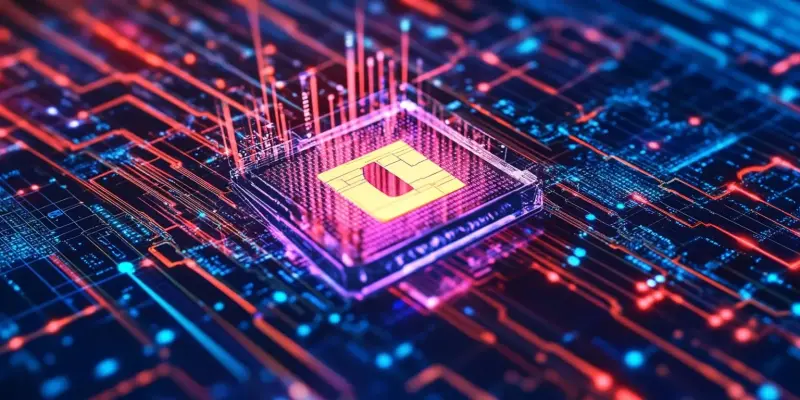In an era where online transactions have become integral to daily life, advanced technology ensures that these payments are secure and rapid, allowing consumers and businesses to transact with confidence. Digital transactions, encompassing online shopping, subscribing to services, and transferring money, are all made possible by sophisticated technological frameworks. These systems operate in the background, guaranteeing that each transaction is swift, reliable, and secure. The importance of these systems lies in their ability to keep up with the increasing volume and complexity of online payments.
Financial Networks and Market Makers
The backbone of secure and rapid transactions includes large financial networks and market makers. These players in both traditional financial markets and cryptocurrency exchanges play a crucial role in managing liquidity and stabilizing prices. The networks facilitate the smooth transfer of funds, ensuring that transactions occur without significant delays. Market makers, on the other hand, create stable trading environments by filling the buying and selling gaps, preventing drastic price fluctuations. The silent operation of this technology ensures that users can conduct transactions seamlessly, benefiting businesses, customers, and investors alike.
Moreover, this infrastructure supports various financial products and services, from everyday purchases to large investments, ensuring they are executed flawlessly. Market makers have adapted to the evolving landscape of online payments, incorporating real-time data analysis and automated trading systems to enhance liquidity and stability. This continuous adaptation highlights the technology’s importance in maintaining a robust financial ecosystem. Additionally, advanced algorithms help predict market movements, thus preventing disruptive volatility and ensuring consistent transaction speeds and security.
Digital Wallets and Enhanced Security
Digital wallets have become an indispensable component of online transactions, substantially reducing the reliance on cash. These wallets store payment details securely and enable instantaneous transactions across multiple currencies, including cryptocurrencies. Their rising popularity reflects the convenience and efficiency they bring to consumers’ lives. Enhanced security features, such as encryption, fingerprint scans, PIN codes, and two-factor authentication, safeguard user data and transactions from potential threats.
Consumers are increasingly adopting digital wallets due to their ease of use and secure nature. With a simple tap or swipe, transactions are completed in seconds, making them an appealing choice for tech-savvy users. Additionally, the increasing use of biometric security measures has further strengthened digital wallets’ trustworthiness. By incorporating fingerprint and facial recognition technology, providers ensure a higher level of security, making unauthorized access virtually impossible. Encryption plays a critical role, transforming sensitive information into unreadable code during transmission, further protecting it from interception or hacking.
Rise of Decentralized Payment Systems
The advent of decentralized payment systems has revolutionized the way monetary transactions are conducted. Unlike traditional payment methods that rely on banks and financial institutions, decentralized systems use blockchain technology to handle transactions directly between users. This innovative approach offers several advantages, including reduced fees, faster transaction times, and greater transparency. By employing decentralized technologies, users gain more control over their funds, allowing for flexible and efficient financial management.
Blockchain, the core technology behind decentralized payment systems, ensures that transactions are immutable and transparent. Each transaction is recorded on a public ledger, visible to all participants, which helps in reducing fraud and enhancing security. Additionally, smart contracts—self-executing agreements with the terms directly written into code—further streamline and automate transactions, eliminating the need for intermediaries. This results in lower transaction costs and faster processing times, making decentralized payment systems an attractive alternative to traditional methods.
Stringent Security Measures
In the realm of online payments, security remains a priority. Multiple protective layers ensure transactions are guarded against potential threats. Techniques such as encryption and AI-driven fraud detection are at the forefront of these security measures, constantly monitoring and analyzing transaction data for suspicious activities. This proactive approach allows for the swift identification and prevention of fraudulent transactions, safeguarding both consumers and businesses.
Users also play a vital role in ensuring their security by adopting best practices, such as setting strong passwords, enabling additional security features, and avoiding untrusted websites. Financial institutions and payment service providers continuously invest in advanced security technologies, conducting regular audits and updates to address emerging threats. Additionally, the use of machine learning and artificial intelligence in fraud detection systems allows for real-time analysis and response, enhancing the overall security landscape. By leveraging these advanced technologies, the industry aims to protect users and maintain trust in online transactions.
Future Implications and Considerations
In an era where online transactions are an essential part of daily living, advanced technology plays a crucial role in ensuring these payments are both secure and fast. The ability of consumers and businesses to transact with confidence is built upon the foundation of sophisticated technological frameworks that enable digital transactions. These frameworks encompass a wide range of activities such as online shopping, subscribing to services, and money transfers. Operating seamlessly in the background, these systems guarantee that each transaction is quick, dependable, and secure. The significance of these systems can’t be overstated, as they are pivotal in handling the growing volume and complexity of online payments efficiently. As digital transactions continue to escalate, the role of advanced technology in maintaining the integrity, speed, and security of these exchanges becomes increasingly important, reassuring users of their reliability and safety in the digital age.

